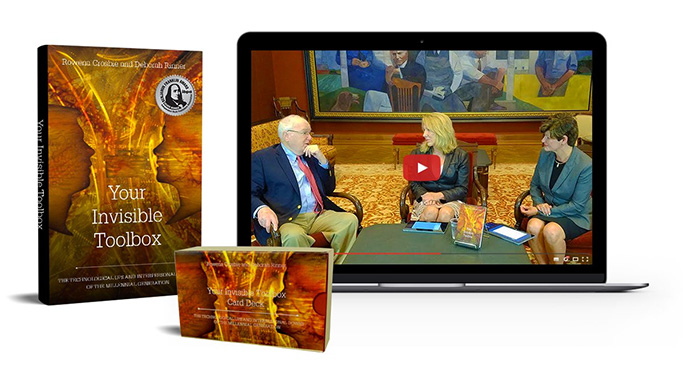The skilled meeting leader or participant knows how to solicit agreement, check for understanding and get everyone's input by asking questions. The following list of questions is your "gold mine" when it comes to making a point or having to disagree with someone yet maintain your professionalism. These types of questions allow us to be assertive and effective in achieving meeting outcomes and presenting ourselves and our ideas positively.
Check-in Questions
Check-in questions are used to check for understanding and most frequently used after you have paraphrased. Use a simple question such as:
Did I get that right?
Confirming Questions
Confirming questions are designed to confirm understanding or agreement. They are typically short and close-ended. Examples include:
Does this approach make sense?
Shall we proceed?
Is that useful to you?
Does that sound okay?
Permission Seeking Questions
Permission seeking questions are designed to support and provide context to the point you are making. They can also be used to invite involvement from quiet individuals or from those who haven't had a chance to weigh into the conversation. Like Check-in and Confirming questions, they are typically brief and close-ended. Examples include:
Can I tell you why I like your idea?
May I share an idea with you?
Can I ask you a question?
May I make a suggestion?
Can I point out an area of shared interest?
I'm concerned we haven't heard from everyone. (Name) would you be willing to share your perspective?
It is important to use permission seeking questions to support, point out agreement or build on common interests. When used to disagree, the approach will mostly backfire. "Can I tell you what's wrong with your idea?" or "May I tell you why that won't work?" are examples of permission seeking questions used poorly.
Open-ended Questions or Statements to Seek Information
Open-ended questions or statements allow others to talk and provide you with more information. They are one of the most powerful tools in your sales toolbox. They can be used effectively to learn more about underlying interests, to explore areas of concern, or to help others come to a decision. Open-ended questions are the secret weapons of investigative reporters and are begin most commonly with the words: Who? What? Where? When? How? Why? Examples of good open-ended questions or statements that invite others to expand their thoughts include:
What were your reasons for?
What were the circumstances surrounding?
Help me understand what you mean.
Walk me through your idea.
Tell me more.
What bothers you about this?
What is most important to you?
Why is this important to you?
Please tell me how this affects you.
What other points of concern do you have?
What else should I know about...?
What would help to take the pressure off?
What if we did it this way?
Which way would you prefer?
How do you feel about this?
How could we do this?
What do you think?
How come?
Please give me more specific detail.
Please share an example.
Open-ended Questions to Guide Thinking
Others will be more convinced by their own observations than they are by your statements. Additionally, if you can get them thinking more broadly about your idea, products and/or services, they may realize benefits that even you hadn't considered.
How do you get others to begin thinking about the consequences of not using your idea, products and/or services or the benefits of using them?
Open-ended questions or statements can be used to direct thinking. Instead of making your point and hoping they see the wisdom of it, you can help them arrive at a conclusion by asking good open-ended questions. Think about what you might like to "tell" them and challenge yourself to phrase it in the form of an open-ended question. Examples follow:
Tell Statement: Our products are the highest quality.
Sample Open-ended Question: How will quality problems affect your reputation in the marketplace?
Tell Statement: Our delivery times are guaranteed.
Sample Open-ended Question: What effect would a late delivery of products have on the success of your business?
Tell Statement: We have the best service.
Sample Open-ended Question: What impact does poor service have on your business?
Tell Statement: Our products reduce your need for other inputs.
Sample Open-ended Question: How do the costs of other inputs affect your budget?
Tell Statement: We have the latest technology available.
Sample Open-ended Question: What are the implications to your business of having state-of-the-art technology available?
Tell Statement: We provide training and ongoing follow-up and support.
Sample Open-ended Question: What skills do your staff members currently have to use this new technology?
Tell Statement: Our product will solve 'x' problem.
Sample Open-ended Question: What would it mean to your business if 'x' problem was solved?
Tell Statement: This service will save your employees time.
Sample Open-ended Question: What effect would saving time have on employee morale?
Tell Statement: You'll see positive results very quickly.
Sample Open-ended Question: How will you know when this problem is solved?
Test Questions
Test questions are probing questions designed to test ideas or challenge assumptions. They are especially useful when you disagree with a point that has been made and you don't want to disagree directly.
Can we explore the pros and cons of your idea?
What are we forgetting?
What are we overlooking?
What assumptions are we making?
How are you feeling about our progress?
The Your Invisible Toolbox® Movement tackles the challenges most individuals, teams, and organizations face. An award-winning book paired with a companion YouTube show and card deck, provide a unique set of research-based tools, put together in an easy-to-apply road map to success.
Find Out More and Join The Movement